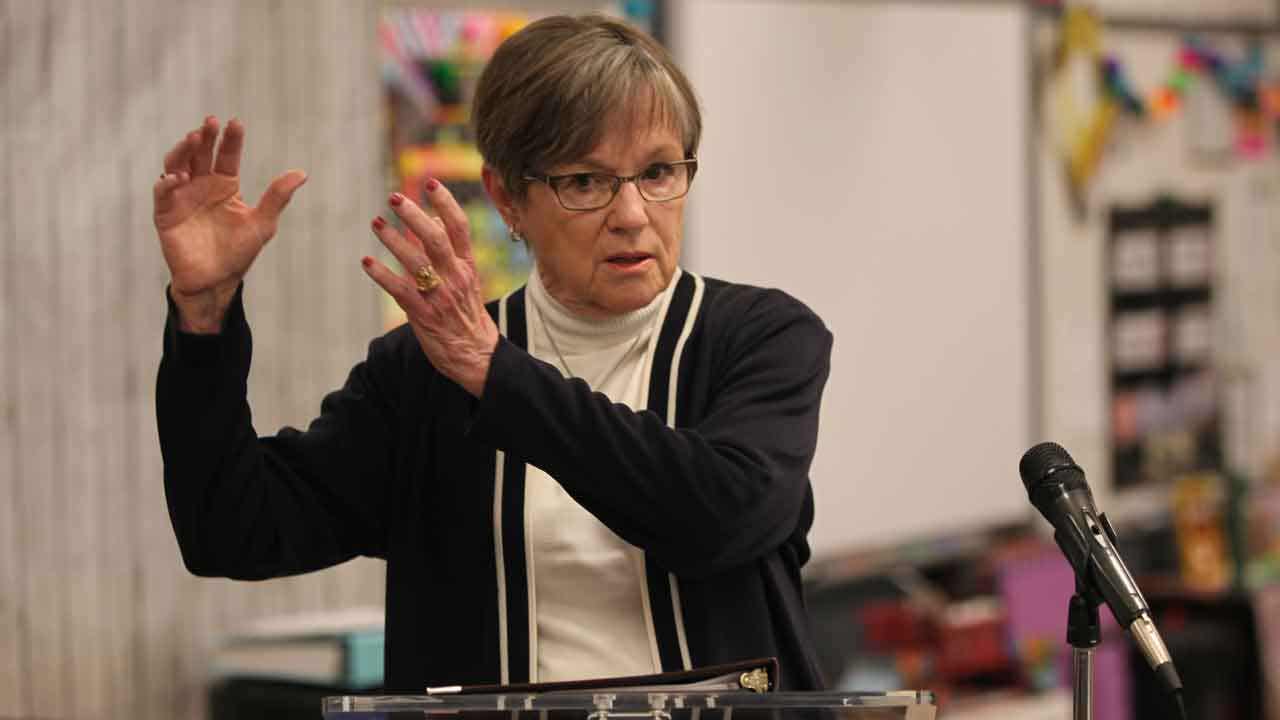San Diego, CA
Little Italy restaurant gears up for San Diego Restaurant Week with unique culinary fusion

As San Diego Restaurant Week kicks off Sunday, Puerto La Boca in Little Italy gears up with early preparations.
“Restaurant week brings a lot of new customers. They never heard about us,” said Roberta Cotta, the co-owner of Puerto La Boca. “We have been doing it over 10 years and it brings people together.”
Over 100 local restaurants, including Puerto La Boca, offer discounted meals starting at $20 from Sunday to March 10.
Both Cotta and co-owner Rodolfo Fanelii started as servers and worked their way up. “We tried things, new ideas to bring people in … especially after COVID changed everything,” Fanelii said.
Puerto La Boca’s unique fusion of Argentinian and Italian culture influences their food, sauces and wine selections.
“About 80 percent of Argentinians have Italian background they grew up with grandmothers who are Italian,” Cotta said. “Their grandmothers were cooking pasta with steaks together.”
Beyond business goals, the restaurant hopes to use Restaurant Week to share the cultural richness that defines their identity.
“I like to make them (customers) happy. That’s what makes me feel good when they leave happy and satisfied.” said Cotta.

San Diego, CA
How Dutch Indonesians Found Their Home in San Diego | San Diego Magazine
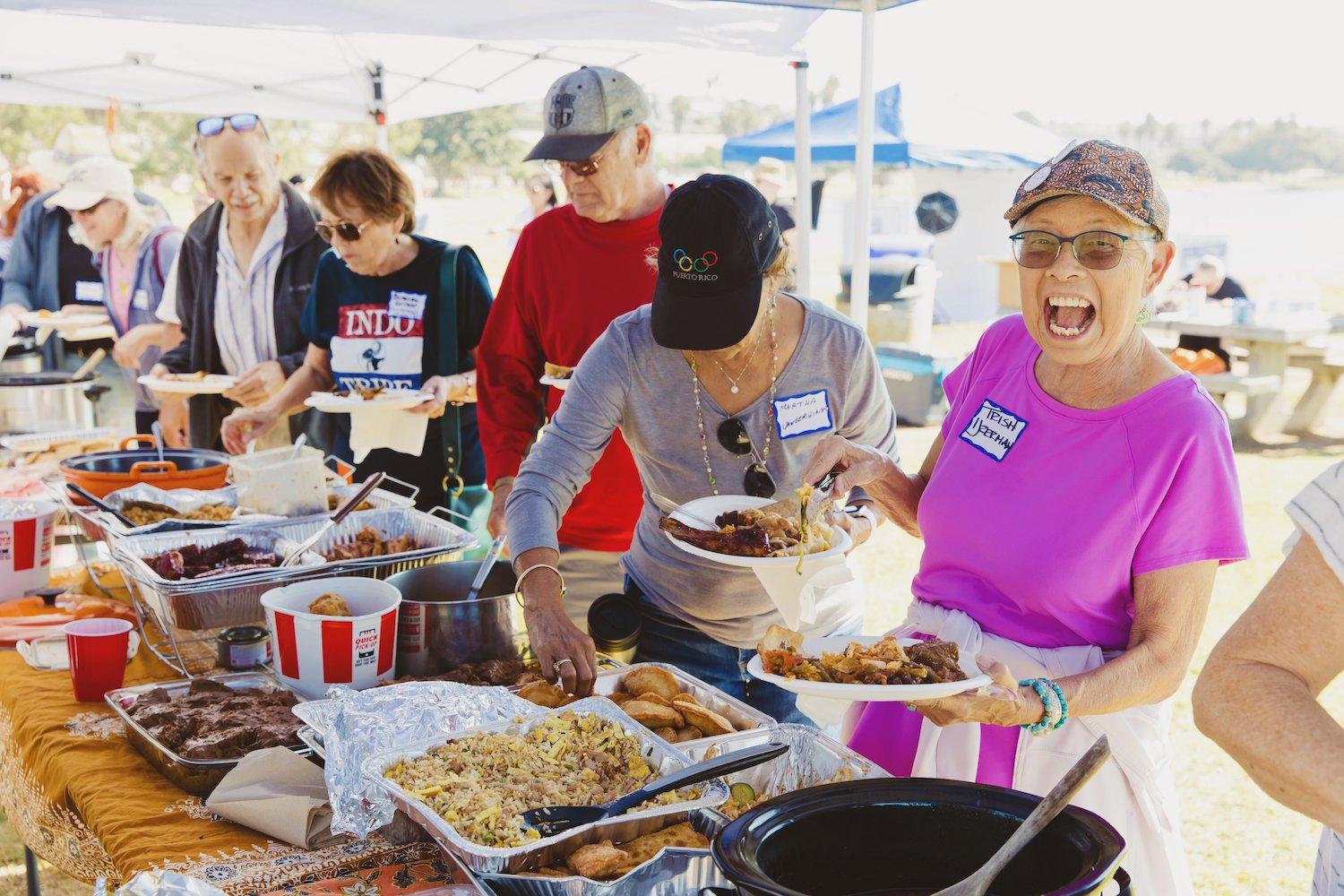
The savory scents of Indonesian ayam pedis and Dutch bitterballen and the convivial tunes of The Tielman Brothers drift over the Mission Bay as a winding line forms under the bright blue tents that cover the Dutch Indos in San Diego potluck buffet. Kids run around, their parents lounging in lawn chairs, as conversations weave from Dutch to English. A couple in their 90s dances on the grass. It’s a party—or actually, a kumpulan.
Today’s kumpulan (Indonesian for social gathering) is the brainchild of Valley Center native and third generation “Dutch Indo” Andrea Matthies, 51. Matthies founded the social group Dutch Indos in San Diego in 2014 to connect the large—but fragmented—local Dutch Indonesian community. “Most Indos of my generation grew up in English-speaking households, not really knowing much about their background,” Matthies explains. She wanted to get back in touch with her Dutch Indonesian roots and community. As it turns out, others did too.
But what is Dutch Indonesian is not exactly easy to answer. “It usually takes me about 20 minutes to explain it to someone,” Matthies laughs. Her spiel usually goes something like this: Her grandparents, Herman and Paula MacMootry, immigrated to America in October 1960 with their four teenage children, including Matties’ mother, Brenda MacMootry-Gruber. The family departed from the Netherlands, but they all had been born in the Dutch East Indies, a former Dutch colony now known as Indonesia.
The MacMootrys were part of a mixed Eurasian community, known as Dutch Indonesians or “Indos.” When Indonesia declared independence from the Netherlands in 1945, the Indo community was violently targeted by nationalist soldiers, and many fled to the Netherlands. But the Netherlands was not the most welcoming place for the nearly 350,000 Dutch Indonesians who moved there. Dutch politicians openly questioned their ability to integrate, and many struggled to find work in the midst of a post-war job shortage.
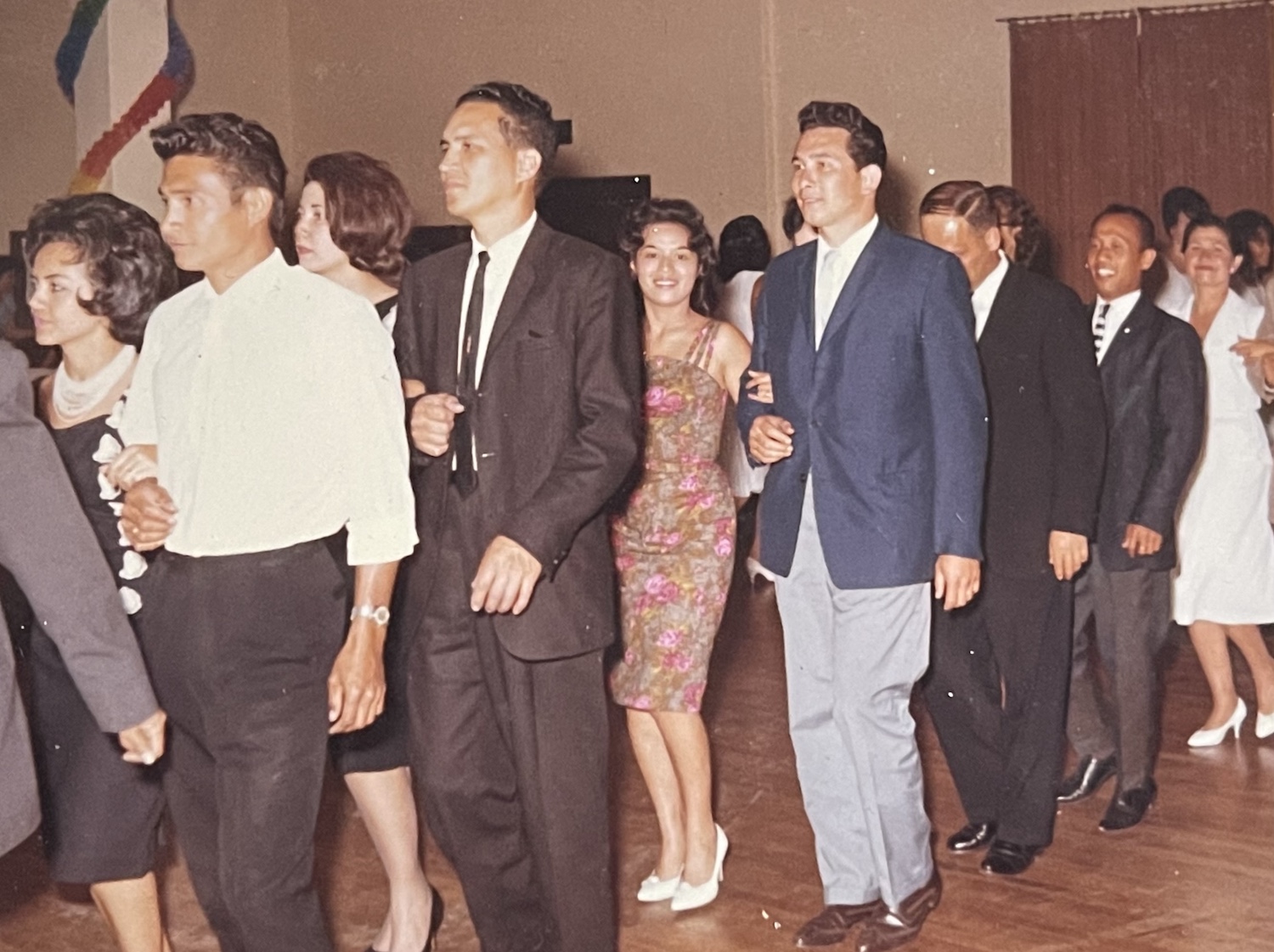
Families who wanted to move to America initially faced strict visa regulations for Asian immigrants. They had to prove that at least 75 percent of their ancestors were of European descent. But when a major flood hit the Netherlands in the 1950s, a special refugee act opened up tens of thousands of American refugee visas. Although the act was meant for displaced Dutch farmers, the Dutch government put thousands of Dutch Indonesians on the list and actively encouraged more to apply.
A government film titled Een Plaatsje In De Zon (meaning “a place in the sun”) promoted California as the place to be: a distant paradise “where the sun almost gives a continuous representation of what you have always imagined your new home to be.” San Diego specifically, with its leisurely lifestyle, proximity to Tijuana, and bustling market scenes with fresh produce that Dutch Indonesians knew from back home, would make a fine home. From the late 1950s to early 1960s, about 35,000 Dutch Indonesians packed their bags and left for the United States.
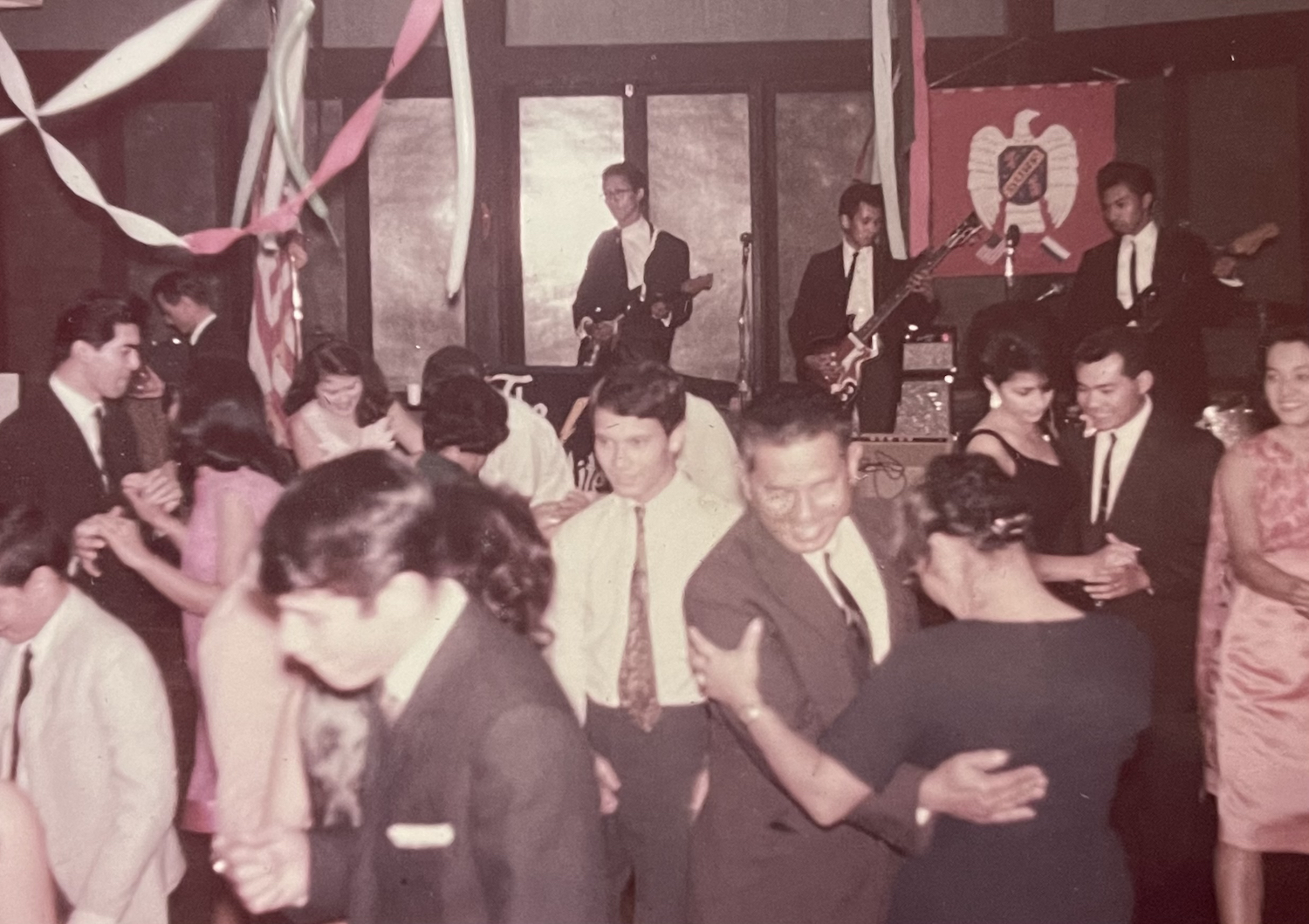
Most Dutch Indonesians adapted to their new life as quickly as possible, speaking English and raising their kids as Americans. But in San Diego, the first ever Indo club in America, the DURF, kept a piece of home alive.
“DURF stands for Dutch Recreational Fellowship,” explains Matthies, who is currently making a documentary about the club with her husband. Friends of Matthies’s family, Fred and Edith Attinger, founded the club in 1961. They organized elaborate dinners, dances, and plays and even invited local politicians to their events.
At its height, DURF had more than 100 members and regularly featured in local media. “My grandmother volunteered in the kitchen and my mother and aunt took part in dances and skits,” Matthies says. She still remembers attending the DURF’s Fourth of July celebration as a child. But as her generation lost interest, membership dwindled. The club folded in 1981.
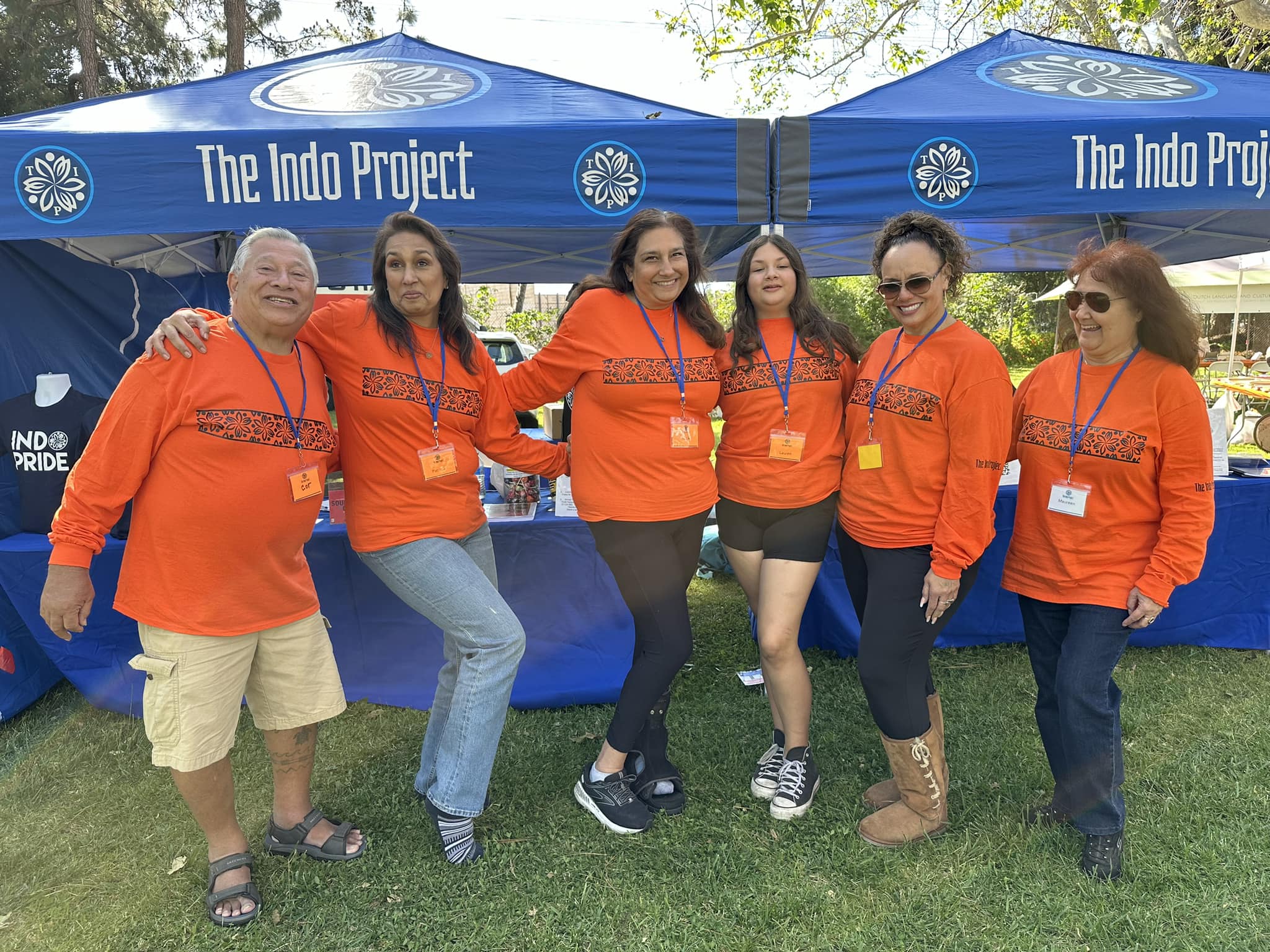
Matthies eventually began researching her family tree and reconnected to family members in the Netherlands. She learned more about Dutch Indonesian history through The Indo Project, which makes information available for English-speaking Indos. At the annual Holland Festival in Long Beach, she met more Dutch Indonesians who had grown up in the US and began hoping to help the Indo community in San Diego celebrate their heritage.
“I wanted to revive DURF’s spirit with Dutch Indos in San Diego,” Matthies says. What started as a Facebook group where local Indos could connect and exchange stories is now a thriving community with biannual and well-attended kumpulans. Looking at the people gathered in Mission Bay, Matthies feels proud seeing so many honoring their ancestors’ food, music, stories, and love for socializing.
“Who knows how long all these generations are going to be together in one spot?” she asks. “Now is the time to enjoy it.”
The next Dutch Indos in San Diego kumpulan takes place Sunday, June 9, at Playa II in Mission Bay. For more information, see their Facebook page.
San Diego, CA
Artisan baker grows wheat crop in San Diego County
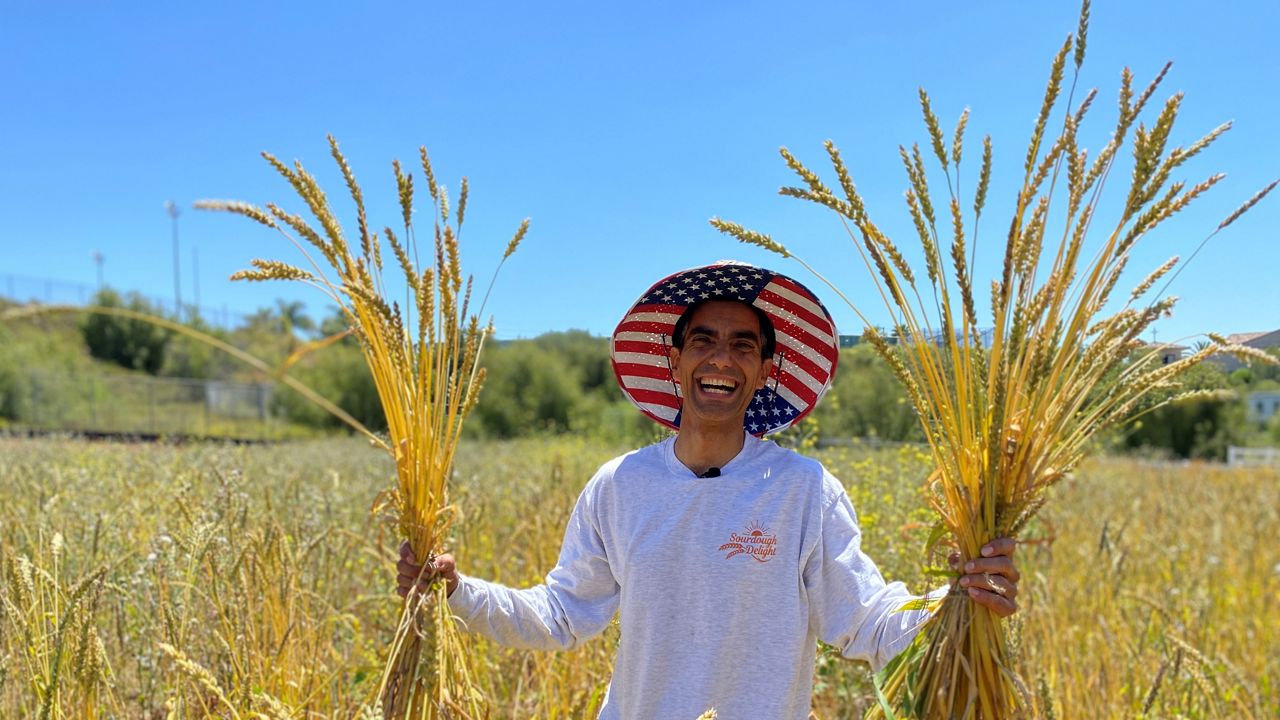
SAN DIEGO — When you picture the many farms in San Diego County, you might picture avocados, oranges and other fruit, but wheat typically isn’t on the menu. One San Diego man is working to bring wheat back to Southern California.
A tedious task like weeding becomes a practice opportunity for Noris Velazquez.
“I can just weed the garden, and it becomes a martial arts training,” he said.
Velazquez is a martial arts instructor and artisan bread maker. The collision of his two passions has earned him the nickname “Kung Fu Baker.” He planted a quarter acre of wheat in December 2023, hoping to spark a resurgence of wheat farming in San Diego.
In the late 19th century, California was once the nation’s second largest suppliers of wheat, but by the 1880s, many San Diego farmers opted to grow citrus and avocados instead.
“Can one person do it?” Noris said. “Because ultimately I wanted to inspire farmers to go “You know, I’ve always wondered if I could grow a cover crop of wheat and not only get the cover crop aspect but also maybe something to harvest that I can use either in my family household or team up with a passionate baker in the area.”
His business, Sourdough Delight, focuses on putting only the best ingredients into his loaves. For Velazquez, that means baking bread with local ingredients, grown sustainably, without any pesticides. He is striving to create a flour that is more nutritious and heartier than the refined stuff from many wheat and commercial mills.
“I want that health and nutrition because flavor also follows that,” Velazquez said.
Bean farmer Mike Reeske donated a chunk of land on his farm, Rio Del Rey, as an experimental playground. He said they tried growing 25 different wheat varieties last year, before settling on planting a full field of a wheat variety called India Jammu this year.
“We produced quite a bit of wheat,” Reeske said. “And so I think this is going to be a signal that other people can do this.”
They are also using a technique called dry farming — cultivating crops without irrigation — which Reeske believes will appeal to struggling farmers.
“We have probably one of the highest prices of water in the United States here, so being able to dry farm a crop and not pay for the water cost is really important,” he said.
Months of dedication and hard work finally paid off at the end of May when Velazquez harvested the wheat. He will now let the wheat dry before threshing the grain to use in his bread.
“Clean food, grown with love and care, and respect for our land, to nourish the community,” Velazquez said. “Nature just does miracles.”
San Diego, CA
Estrada untouchable with record 13 straight K's

Seriously. Everybody.
In the Padres’ 4-0 victory on Tuesday night at Petco Park, Estrada struck out all three Marlins he faced. They were his 11th, 12th and 13th consecutive strikeouts, setting a
-

 Culture1 week ago
Culture1 week agoFrom Dairy Daddies to Trash Pandas: How branding creates fans for lower-league baseball teams
-

 News1 week ago
News1 week agoRed Lobster files for bankruptcy after missteps including all-you-can-eat shrimp
-

 World1 week ago
World1 week agoPanic in Bishkek: Why were Pakistani students attacked in Kyrgyzstan?
-

 News1 week ago
News1 week agoThe states where abortion is on the ballot in November : Consider This from NPR
-

 Politics1 week ago
Politics1 week agoMichael Cohen swore he had nothing derogatory on Trump, his ex-lawyer says – another lie – as testimony ends
-

 News1 week ago
News1 week agoCity of Kyle falls short of ‘Kyle’ world record
-

 Politics1 week ago
Politics1 week agoAnti-Israel agitators interrupt Blinken Senate testimony, hauled out by Capitol police
-

 Movie Reviews1 week ago
Movie Reviews1 week agoMai Movie Review: Emotionally powerful lead performances in this sensitive and heart-breaking romantic film









/cdn.vox-cdn.com/uploads/chorus_asset/file/25469996/1728358988.jpg)





